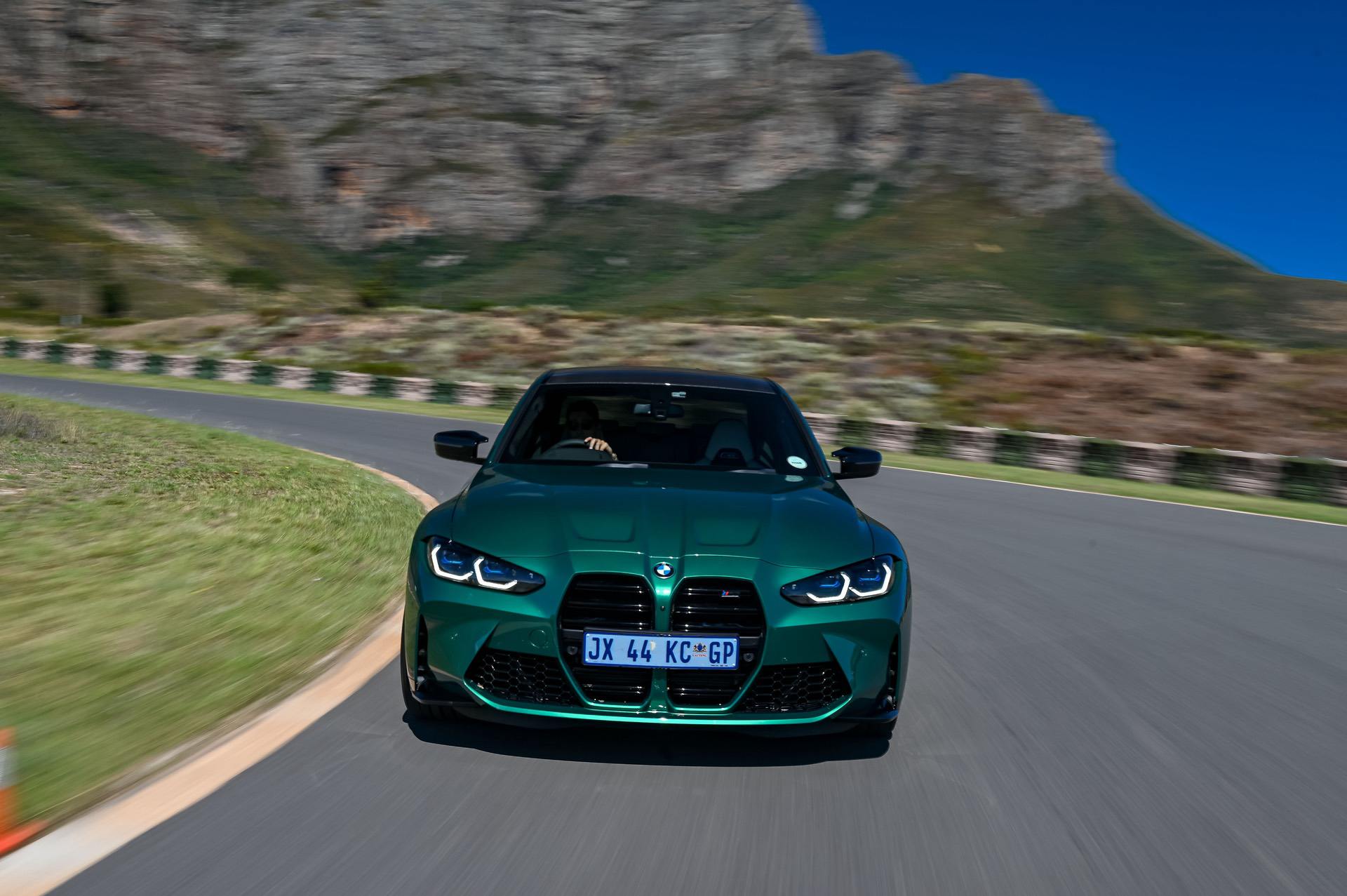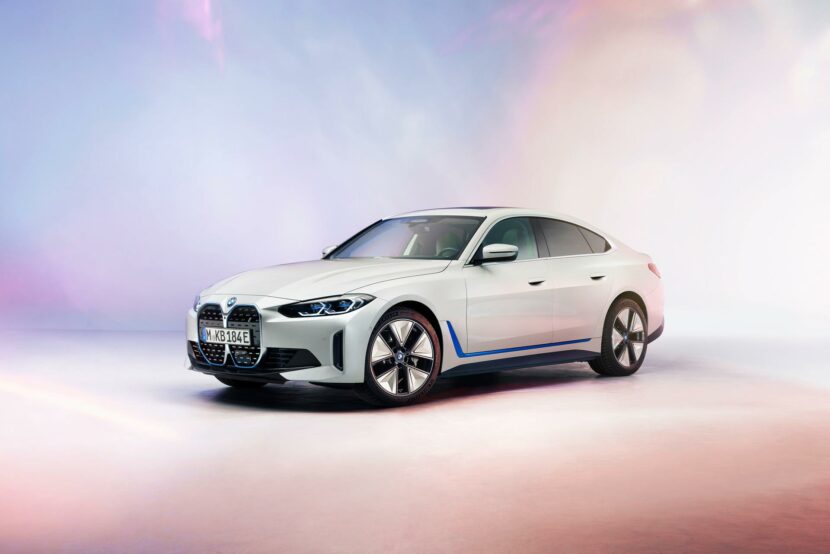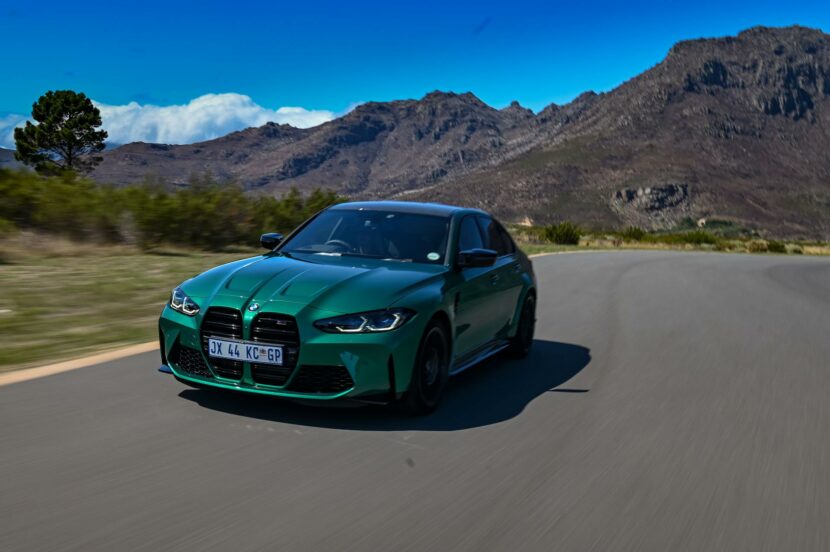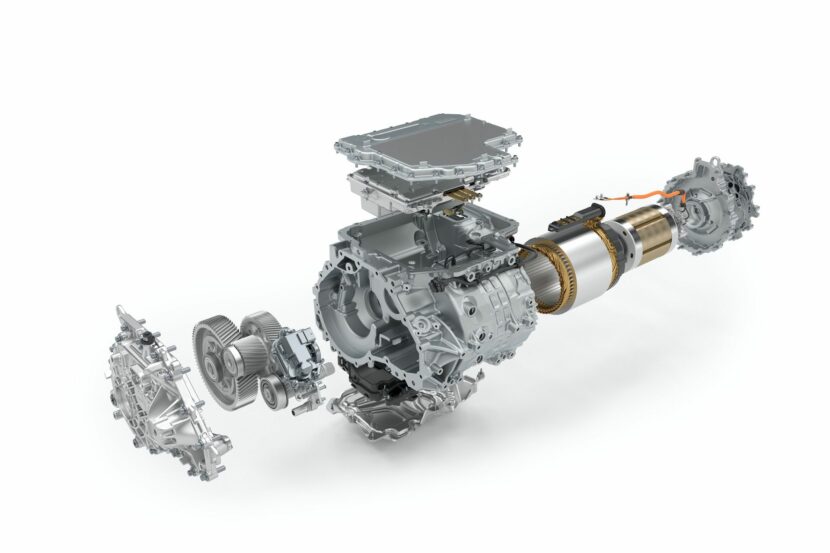BMW recently made claims about sticking with internal combustion, alongside EVs, for the foreseeable future. While several other premium brands are making full-scale crossovers to electrification within the decade, BMW says the internal combustion engine continues to have a future within the brand. However, at least for the next-generation BMW M3, I think the Bavarians should scrap the piston-engine altogether.
Hold your torches and pitchforks for just a minute and hear me out. This current-gen BMW M3 (and the M4) will likely run for the standard six-year BMW model life-cycle. By the time this G80 M3 reaches the end of its line, it will be the year 2027, dangerously close to when many of its premium competitors will be fully-electric. The BMW i4 will also have existed for about five years and will be readying its own replacement. So why have both the BMW M3 and i4? Why not just consolidate the two cars into one; a fully-electric M3?
We know that BMW is capable of developing an EV sedan with M Division levels of power and performance, as the recently announced BMW i4 packs over 500 horsepower and a four-second 0-60 mph time. It’s entirely reasonable to think that in six years BMW will have been able to figure out how to lighten that EV/battery architecture, while also extending its range, in a cost-effective enough manner.
With that in mind, I see no reason why BMW M can’t develop an M3 with 550-ish horsepower, around 4,000 lbs, 300-plus miles of range, and a sub-four-second 0-60 mph time, all for around what we’d normally pay for an M3. We don’t know what the current BMW i4 will cost but it’s said to be around M3-money as early as next year. So with several more years of development time, BMW M should be ready for an all-electric M3.
There’s also the matter of the M3’s future competitors, both traditional and otherwise. By 2027, the Mercedes-AMG C63 will already be a plug-in hybrid with a four-cylinder engine, according to the folks in Affalterbach. Audi Sport will likely have an e-tron equivalent to the M3 as well. Jaguar is also readying its own all-electric performance sedan, as it tries to go fully-electric by 2030.
Then there’s Tesla. At the moment, there’s no word on any such Model 3 Performance replacement. Though, despite Tesla’s glacial pace (the Model S received its first facelift nine years after its release), it’s likely that by 2027, there’s something new to replace the Model 3 Performance. Given just how disruptive the current Model 3 has been to the traditional premium sports sedan segment, we can only imagine what Tesla will be able to do in another six years. Think 600 horsepower and 500 miles of range in a sedan the size and cost of the current Model 3 Performance.
BMW M has always been a leader in performance technology, especially in regards to the M3. It always had the highest-revving engines, class-leading power-per-liter, high-tech variable valve-timing, the most responsive of transmissions, and all of the most exciting high-tech software in the segment. When compared to cars like the AMG C63 and Audi RS4, BMW’s M3 always felt like it had the best tech; both in terms of hardware and software. However, if BMW M decides to not pursue full electrifications for its next-generation of performance machines, it’s going to be playing catchup.
Awhile back, when we could actually converse with people in person, I had a discussion with a former BMW employee who spoke about that very topic. He had said he always loved BMW M cars because they always pushed the boundaries of mechanical technology; high-revs, schmancy valve-timing, and the like. However, he was disappointed that BMW M no longer pushed those boundaries as of late and seemed to be playing it safe. The new BMW M3, as impressive as it is, does seem to be playing it a bit safe, mechanically speaking; with just a modified B58 engine and an eight-speed torque-converter automatic.
I’d like to see BMW M push the boundaries again and push for an all-electric, high-performance sedan, with class-leading power and performance, as well as the sharpest handling in the segment. Sure, it would likely be heavy but it’s not as if the current M3/M4 are featherweights. Plus, Porsche and Audi have proven that, even with a portly curb-weight, electric performance sedans can feel razor sharp, with the Taycan and RS e-tron GT, respectively. So there’s no reason BMW M can’t do the same.
All of this is a long-winded way for me to say that BMW M should forget about internal combustion in the next M3 altogether. Invest in the future, push the boundaries, and remind everyone who makes the Ultimate Driving Machine again.








































































